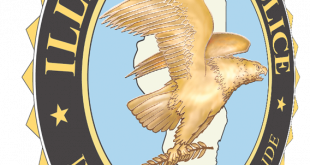Jake Griffin
Over the past 16 months, the College of DuPage has paid more than $26 million without the board of trustees knowing specifically how the money was spent.
That’s because of a long-standing board policy that allows administrators to pay bills of less than $15,000 without providing itemized reports.
The records also showed instances where multiple checks were issued to the same vendor in a month in totals that exceeded the $15,000 threshold.
The unitemized spending adds up to more than $1 million a month, according to the reports. While some of the bills are generated by board-approved contracts, others are paid with petty cash funds.
During COD’s most recent fiscal year that ended in June, roughly 12 percent of the college’s $160 million spending — more than $18 million — went without scrutiny or oversight by the board, which has as its chief responsibility stewardship of the college’s finances.
Board Chairwoman Erin Birt said it’s “not the inclination of the majority of the board to change the board’s policy” regarding the reporting of expenditures.
“We have a board treasurer that we approve each year, an internal auditor and an external auditor, and we haven’t had any issues so far,” Birt said.
Tom Glaser, the college’s senior vice president of administration and its treasurer, said audits of COD’s spending procedures are “clean.”
But the practice has raised the ire of at least one board member and the eyebrows of government accountability advocates.
“Although it may be technically allowed for individual payments of less than $15,000 to not be reviewed by the governing board, if a pattern emerges whereby in a consistent manner payments in excess of $15,000 are being accumulated by one vendor … then the spirit of fiscal oversight and good government would require review by the full board or certainly the audit committee,” said Laurence Msall, president of the Chicago-based Civic Federation, a government finance research organization. “There is little harm in having the board review or approve expenditures that end up representing a significant portion of the budget.”
Officials at Elgin Community College, Harper College in Palatine, McHenry County College, Oakton Community College in Des Plaines and Waubonsee Community College in Sugar Grove said the elected boards at those colleges receive itemized reports for all spending each month.
“You want to see this because if you see something out of line … you get a chance to ask questions about it,” said ECC board member Art Sauceda, who is an accountant. “Sure, there are some purchases that don’t require board approval, but at least we get a chance to see what goes on and ask questions.”
At the College of Lake County in Grayslake, the board doesn’t see itemized financial reporting but is alerted to expenditures of more than $5,000. Board Chairwoman Amanda Howland said that’s been the policy since before her election and it might be time to re-examine it.
However, she added, “I don’t think things are slipping by. We get volumes of financial reports.”
COD’s spending policy came to light after Adam Andrzejewski, founder of the government finance watchdog group For The Good of Illinois and the transparency website OpenTheBooks.com, filed a public records request for itemized spending reports.
He and COD board Vice Chairman Kathy Hamilton want all itemized spending reported to the board each month.
“The board doesn’t know what it’s approving,” said Hamilton, an accountant. “The fact is, we don’t get any information about what’s going through there.”
Andrzejewski released a 508-page report detailing the 21,730 individual payments made without board scrutiny between April 2013 and August 2014 on his website. He chided the board for not maintaining complete oversight of the college’s finances.
“In Illinois, corruption hides in dark corners,” he said. “At a minimum, elected trustees have a duty to provide open, honest and transparent governance. COD trustees must start simply doing their job.”
Sodexo, AT&T, Office Depot, Hewlett-Packard, Stiver Staffing Services and the Daily Herald are among several vendors that received more than $15,000 a month but in increments below the threshold that required itemized reporting to the board. Some companies received more than $300,000 over the course of the 16 months that was not submitted for board approval. The Daily Herald and its parent company, Paddock Publications, received about $151,000 from the college during that time, mainly for advertising, according to the documents.
College officials said detailed spending will be provided at the board’s meeting Sept. 25 at Hamilton’s behest, but it’s unclear if that will continue into the future.
“We’re happy to show them individual payments,” said Glaser, the board’s treasurer. “We’re following board policy and (that policy states) they don’t want to see payments of $15,000 or less. If Kathy Hamilton wants to introduce an amendment that requires every payment to go to the board, she can do that.”
Hamilton said she has not introduced such an amendment because that’s a decision board members should make together. That’s why she asked for the report to be included in the information the board is presented this month, she said.
“I want to have a discussion with the board whether we should start seeing these,” she said. “At the last board meeting, I kicked off this conversation and it’s obviously created a firestorm. I intend to bring forward a resolution to open up public payments to school vendors and employees.”
Hamilton has been at odds with the administration essentially since she was elected last year and was recently censured by the board for “inappropriate conduct.”
She said the censure was in retaliation for her speaking out against the college’s spending practices and claims the report the college provided Andrzejewski backs up her claims. She said the board policy states that any checks of more than $15,000 “shall require individual approval by the board of trustees.” According to the report sent to Andrzejewski, 105 checks were cut to various vendors in excess of $15,000 without board approval.
“Those are only because we consolidate checks instead of writing (multiple) checks in a month. It’s more efficient,” Glaser said. “The individual invoices are under $15,000.”
Andrzejewski said his goal and that of For The Good of Illinois is to “pioneer a model of open data, citizen engagement and media coverage to squeeze out corrupt practices.
“Since COD is my local community college, I chose them for examination,” he said. “It’s been a bit more work than we expected, but we’re proud of our early successes to hold them accountable.”
Glaser said each payment that isn’t approved by the board still has to be vetted by multiple department heads and the college’s internal auditor.
Glaser said even nearly $5,000 spent at a Dundee-based hunting club by College President Robert Breuder as part of his compensation package was approved by the college’s internal auditor.
“We have nothing to hide here,” Glaser said. “We have clean audits. There’s nothing wrong going on here.”
 News Chicago Business, Info & Events
News Chicago Business, Info & Events








